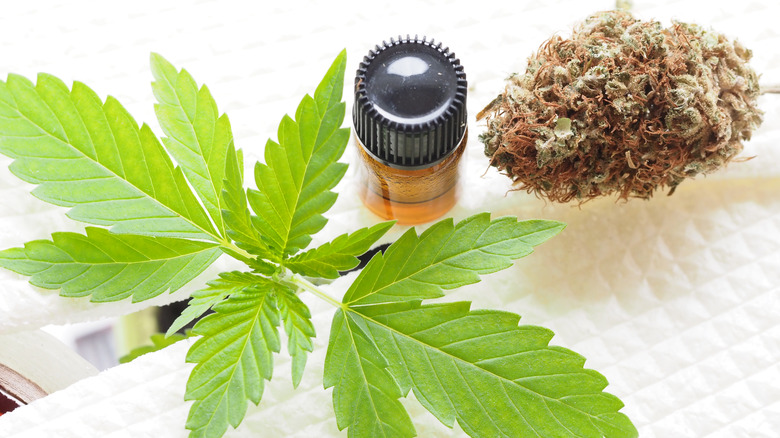New Study Sheds Light On Possible Risks Of Using Marijuana
With more than 19 states legalizing recreational marijuana in the United States, the National Institutes of Health reports that marijuana use is on the rise, particularly among young adults. Despite cannabis becoming more accepted, it doesn't mean using it comes without significant risk. A new study published in the British Medical Journal Open Respiratory Research originally sought to see if marijuana use was linked to more respiratory problems. Although it didn't find this connection, the research found that using marijuana is connected to more visits to the emergency room.
The study looked at six years of health records from residents in Ontario, Canada. It compared the data from residents who didn't use cannabis the previous year with those who did. When controlling for other factors, such as a history of smoking, drug abuse, or alcohol use, those who smoke marijuana were more likely to wind up in the hospital. The most common reason these residents visited the hospital was acute trauma, but respiratory illness was a close second.
Marijuana use isn't as safe as you think
Researchers are looking deeper into what happens to the body when you smoke marijuana. Even though marijuana doesn't have all the same harmful chemicals as tobacco, your lungs can still be at risk. A 2021 study featured in eClinicalMedicine found that smoking marijuana can leave toxins in your body. The researchers found naphthalene, acrylamide, and acrylonitrile metabolites in people who smoked it. Although the levels of these toxins were lower than in tobacco smokers, the toxins can cause liver damage or neurological damage if your smoking increases.
Although some are drawn to marijuana to cope with anxiety, those who have mood disorders might want to take caution. According to a 2021 study in the Journal of the American Medical Association Pediatrics, cannabis use was significantly linked to psychiatric hospitalization, nonfatal self-harm, unintentional overdose, and homicide in adolescents, teens, and young adults diagnosed with mood disorders.
According to the National Institutes of Health, marijuana can affect your brain in the long term because it can impair your brain's ability to develop. Marijuana is also linked to poor mental and physical health, as well as lower life satisfaction.


